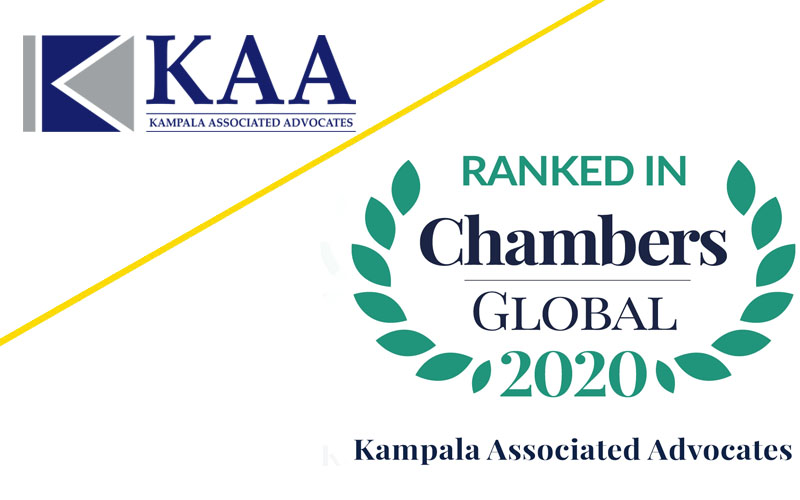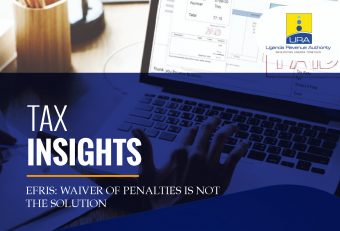Trends and Developments
The New Telecommunications Legal Framework In Uganda And The Growth Of The Telecom Industry
The telecom industry has made significant contributions to the economies of a number of nations. In fact, the development/growth in Uganda’s fastest growing industries, such as the tourism industry, is closely hinged on the development of the telecommunication services and infrastructure in Uganda. In the past, the growth of Uganda’s telecom industry has largely been stifled by the lack of competition as a result of market domination by a few major operators. In turn, the output of the telecom industry remains restricted.
In order to balance such societal objectives with economic vitality, the Uganda Communications Commission (UCC) as the statutory regulator, conducted a comprehensive review of the telecommunications legal framework and a consultative process in 2019 which gave rise to a completely new and attractive framework mainly intended to boost investment in the telecom sector. The just concluded review which was commenced in April 2019, was informed by various factors including; the need to minimise regulatory arbitrage, the need to align the Licensing Framework with industry developments; and to a large extent, the need to align it with the provisions of the National Broadband Policy, 2018 and the amended regulatory requirements.
The Telecommunications Licensing Framework review was tailored to meet the National Broadband Policy objectives and strategies, which included;
- Spectrum management: Through outlawing hoarding of spectrum and enable realisation of economic value of the spectrum through spectrum re-farming and unbundling of spectrum and license;
- National roaming: By requiring licensees to provide customers with seamless access and coverage irrespective of their network;
- Structured renewal of licences;
- Local Listing: In respect of particular licence categories, local listing will be a mandatory post licensing requirement. For other categories, local ownership will be a mandatory post licensing requirement; and
- Number portability: Whereas this is a policy objective, the licensing review exercise resulted in a decision to differ this issue to the future when an exhaustive study has been carried out in relation to the issue.
So how is the new framework beneficial to the telecom industry? Largely, the new framework was drafted to support local ownership of telecom businesses, to improve the quality of services, to promote infrastructure sharing among operators and thereby reduce the cost of telecom services.
It is made up of 18 different Statutory Instruments (Regulations) which were all individually drafted to address specific challenges within the sector. Many of these challenges are caused by technological innovations that are either unregulated or innovations that render previous regulations ineffective. Other challenges, as already noted above, are tied to a lack of competition which sprouts into various challenges.
This piece attempts to highlight a few of the noteworthy solutions that the new framework presents.
Increase of Choice Among Operators
The major operators in Uganda, such as MTN and Airtel, have created a duopoly since they have been in operation for a long time and own most of the telecommunications infrastructure. They own the largest percentage of customers, making it very difficult for new players to last in the business.
However, the new telecom licensing regime affords new players the opportunity to provide a particular service to a particular region in the country. The Uganda Communications (Licensing) Regulations, 2019, provide for various categories of licences and introduce a number of authorisations that the previous legal regime had not foreseen. This eliminates the burden on operators trying to cover the entire country whilst additionally offering an increase of choice among operators.
For instance, in regard to telecommunications services, one can only apply for a Public Infrastructure Provider licence (PIP) to construct, install and operate network facilities in either a region of the country (Regional PIP) or to the entire nation (National PIP). One may also apply for a Public Service Provider License (PSP) to provide telecom services to either a particular region (Regional PSP) or to the entire country (National PSP). A holder of any of the above licences who remains in good standing with UCC for ten years may apply for a National Telecommunications Operator’s License (NTO), which allows an operator to host networks, share infrastructure and it lasts for 20 years.
The new framework has also introduced various authorisations that will allow small players to specialise in the provision of one or two services, thereby reducing cost and increasing the quality of services. A person may apply for authorisation to deal strictly in the distribution and sale of telecom equipment while another may apply for authorisation to import, vend, install and maintain telecom equipment. Others include authorisations to set up manufacturing plants and authorisations for disposal of communications equipment.
Under this new regime, the UCC will grant licenses to persons who provide value added services. These include digital financial services such as mobile money which was previously unregulated and the sale of content whether audio, visual, data and broadcast content. Operators that offer music for sale and other related content through services, such as Tidal and Spotify, must seek authorisation from the UCC.
In addition to the above authorisations, the Uganda Communications (Licensing) Regulations operationalise parts of the Uganda Communications Act by requiring the UCC to classify services operated on a communication platform as a regulated value-added service and to require providers of such services to obtain licences and authorisation from the UCC. The following broad services have been classified as licensable value added services, necessitating their providers to obtain one of the following authorisations to wit: authorisation to provide Digital Financial services (to cover all providers engaged in the provision of digital financial services, including electronic financial non-banking services, insurance services, etc), authorisation to provide aggregation services (to cover persons that provide communication aggregation services, including short code holders and other providers that use communication infrastructure to aggregate content) or authorisation to provide Digital Audio-visual content (to cover persons that create, package and make available digital audio-visual content through the telecommunication infrastructure).
The licensing regulations provide for a lot more categories of licences ranging from broadcasting services, radio communications services, to licences for the operation of cinematograph theatres, video halls or film libraries. The new framework presents potential investors with countless options within the sector to allow them survive alongside the major operators.
On the flip side, however, the new licensing regime also presents a challenge for providers of new age communications such as bloggers and providers of value-added services. Since the new regulations also target providers of digital financial services such as electronic wallets and users of the mobile money platform, this regime may potential eat away at the crucial gains of financial inclusions that mobile money had made. Since they were only recently enacted, the jury is still out on their actual impact on the telecommunications sector as a whole.
Infrastructure Sharing
To further reduce the burden on smaller players in the market, holders of licences such as a National PSP or a Regional PSP are allowed to use the infrastructure of licensed PIPs or NTO’s. This infrastructure sharing is intended to reduce the cost of service provision for PSP’s who will not need to invest in infrastructure which will in turn reduce the price of those services.
Effective Utilisation of Spectrum
In order to ensure optimal use of spectrum and to curb spectrum hoarding, the new telecom legal framework allows the UCC to re-farm spectrum bands. This is the process of re-deploying spectrum from available users and re-allocating it to others, facilitating effective utilisation of spectrum. Small players stand a chance to benefit greatly since they may not need to apply for spectrum reservation which will greatly reduce the cost of operation.
Improved Quality of Services
According to the Uganda Communications (Quality of Service) Regulations, every operator is required to meet certain standards of quality of service as determined by the UCC. These regulations are intended to create conditions for consumer satisfaction by prescribing the quality of service which an operator is required to provide and which the user has the right to expect, thus improving the quality of services overall.
In relation to infrastructure, the new framework ensures that telecommunications equipment sold, leased, manufactured or installed by an operator is type-approved. An operator who intends to deal in telecom equipment has to apply to UCC for authorisation under the Uganda Communications (Equipment Type Approval) Regulations. Type approval is granted for products/apparatus which meet the minimum set of regulatory, technical and safety requirements.
In fact, the Uganda Communications (Centralized Equipment Identification Register) Regulations, 2019 establish a Centralized Equipment Identification Register (CEIR) which shall contain a list of all equipment that is permitted for use permanently or temporarily and equipment that is blacklisted due to unsuitability for use. This will promote and safeguard the interests of consumers by preventing the use of unauthorised use of communications apparatus which may be stolen or faulty.
Fair Competition
While the new legal regime intends to promote competition within the sector, it also ensures that the said competition is done fairly amongst all players. It introduces competition regulations that are specific to the telecommunications industry.
The Uganda Communications (Competition) Regulations were enacted to ensure that communications services are reasonably accessible and fairly priced in Uganda. Anti-competitive agreements, abuse of dominant positions, anti-competitive mergers and other like practices are all specifically prohibited under the new framework.
Conclusion
In conclusion, the new regulations are numerous and some players may argue that changing the framework might disrupt the sector and result in over regulation. However, clear policies and well-defined regulations have proved to be an important factor in countries with swiftly developing telecom industries, such as China and India.
The new legal framework for telecoms in Uganda has a lot to contribute as far as the growth of the industry is concerned. Intending investors and licensed operators must fully understand these regulations in order to derive maximum benefit from them and be compliant to avoid any breaches.



